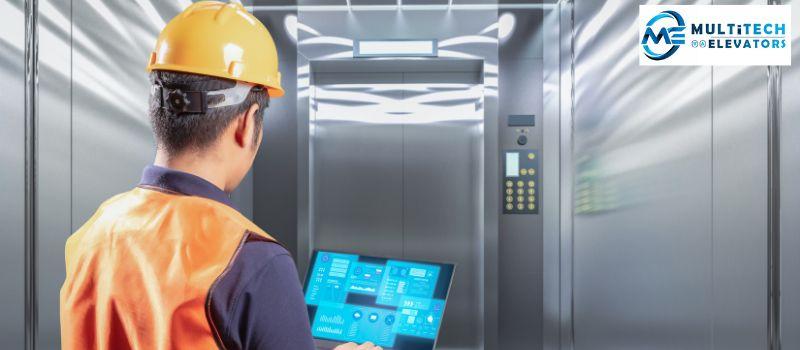The Health Benefits of Home Elevators: An Overview

Home elevators, once seen as luxury items reserved for the wealthy or those with significant mobility issues, have become increasingly common in modern homes. This trend is not just about convenience or aesthetics; it also brings a range of health benefits that can significantly improve the quality of life for many individuals. In this overview, we will explore how home elevators contribute to physical health, mental well-being, and overall safety, making them a valuable addition to any residence.
Enhancing Mobility and Independence
One of the primary health benefits of home elevators is the enhancement of mobility for individuals with physical limitations. For the elderly or those with chronic conditions such as arthritis, navigating stairs can be a daunting and painful task. Home elevators eliminate the physical strain associated with climbing stairs, allowing individuals to move freely between floors without risking injury or exacerbating existing health conditions. This increased mobility fosters a sense of independence and self-sufficiency, which is crucial for mental well-being.
Reducing the Risk of Falls
Falls are a leading cause of injury among older adults, often resulting in fractures, hospitalizations, and a decline in overall health. Stairs pose a significant hazard, especially for those with balance issues or weakened muscles. By providing a safe and reliable means of transportation between floors, home elevators drastically reduce the risk of falls. This is particularly important for those who live alone, as a fall on the stairs can lead to prolonged periods without assistance. Installing an elevator in the home creates a safer environment, thereby contributing to peace of mind for both the individual and their loved ones.
Alleviating Joint Stress
Repeatedly climbing stairs can take a toll on the joints, especially the knees and hips. For individuals with conditions like osteoarthritis, this repetitive motion can cause significant pain and discomfort. Home elevators offer a solution by minimizing the need for stair use, thus alleviating joint stress. This can lead to reduced pain, increased comfort, and a higher quality of life. Additionally, by preventing joint deterioration, home elevators can help individuals maintain their mobility and independence for a longer period.
Facilitating Caregiver Assistance
For those who require assistance from caregivers, home elevators can make a substantial difference in the ease and quality of care provided. Caregivers often need to transport their clients between different levels of the home, and doing so via stairs can be challenging and risky. Elevators provide a safer and more efficient means of moving individuals who require assistance, reducing the physical strain on caregivers and minimizing the risk of accidents. This can lead to better overall care and improved health outcomes for the individuals being assisted.
Promoting Mental Well-Being
The mental health benefits of home elevators should not be underestimated. For many individuals, the ability to move freely within their own home without fear of injury or excessive physical effort can significantly enhance their mental well-being. The independence gained from using an elevator can lead to increased confidence and a more positive outlook on life. Furthermore, the reduction in physical strain and pain associated with stair use can alleviate stress and anxiety, contributing to better mental health.
Improving Accessibility
Home elevators are not only beneficial for elderly individuals or those with chronic conditions; they also enhance accessibility for anyone who might temporarily or permanently struggle with mobility. For instance, individuals recovering from surgery or injury can benefit from the ease of movement that an elevator provides. This ensures that they can continue to access all areas of their home without difficulty, promoting a smoother and more comfortable recovery process.
Encouraging Aging in Place
The concept of aging in place refers to the ability of individuals to live in their own homes safely, independently, and comfortably as they age. Home elevators play a crucial role in supporting this concept by making homes more accessible and adaptable to changing mobility needs. By installing an elevator, homeowners can future-proof their residences, ensuring that they can remain in their familiar environment even as their physical capabilities evolve. This can prevent the need for relocation to assisted living facilities, which can be stressful and disruptive.
Enhancing Quality of Life
Ultimately, the installation of a home elevator can lead to a significant enhancement in overall quality of life. By addressing the physical challenges associated with stairs, elevators enable individuals to maintain their preferred lifestyle without compromising their health or safety. This can lead to greater enjoyment of daily activities, improved social engagement, and a more active and fulfilling life.
Customization and Adaptability
Modern home elevators come in various designs and configurations, allowing for customization to meet specific health needs and preferences. For example, some elevators are designed to accommodate wheelchairs, while others offer features such as seating or handrails for additional support. This adaptability ensures that home elevators can cater to a wide range of mobility requirements, providing tailored solutions that maximize health benefits.
Conclusion
Home elevators offer a multitude of health benefits that go beyond mere convenience. They enhance mobility and independence, reduce the risk of falls, alleviate joint stress, facilitate caregiver assistance, and promote mental well-being.
- Art
- Causes
- Best Offers
- Crafts
- Dance
- Drinks
- Film
- Fitness
- Food
- Games
- Festival
- Gardening
- Health
- Home
- Literature
- Music
- Networking
- Other
- Party
- Religion
- Shopping
- Sports
- Theater
- Wellness



